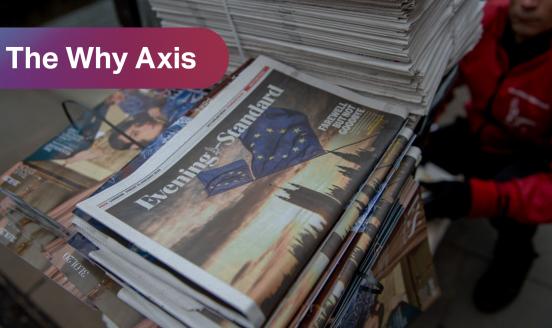Euro area banks must be freed from national capitals
Most of Europe has been engulfed by a systemic banking crisis for more than four years, even as policymakers and bankers themselves have strived to deny it. Even worse, the continuing banking system’s fragility is increasingly intertwined with the euro area’s sovereign debt crisis, as illustrated by successive patterns of contagion, from sovereigns to banks or conversely, from Greece to Ireland, Portugal, Spain, and more recently to Italy and France.
It is now plain that the crisis will not be resolved by a muddling-through approach that would allow a return to the status quo ante. If the euro is to survive, euro area citizens will have to accept pooling economic policy decision-making in unprecedented forms, a redefinition of the political pact that underlies European integration, and significant treaty changes.
An intense policy debate focuses on the options for euro area fiscal federalism, expansion of the role of the European Financial Stabilisation Facility (EFSF), eurobonds, or what European Central Bank President Jean-Claude Trichet, in a landmark speech in Aachen in June, called a ministry of finance for the European Union. But the banking side of the crisis also calls for far-reaching innovation. For it to be resolved, Europeans must define a model of banking federalism that would complement the existing monetary federalism and the objective of fiscal federalism. All are needed as components of European financial and economic policy.
The strong and multifaceted links that remain between national banking systems and member states are at the core of the contagion dynamics. These linkages also prevent the emergence of a true single European market for banking services. Economic and monetary union requires that these links be severed and replaced by a credible supranational framework for banking policy, building on the recently created European Banking Authority (EBA) and on the financial resources of the EFSF (or whatever replaces it). Some member states have already gone a long way toward decoupling themselves from their banking systems: Central and Eastern European countries have sold most of their banks to foreign groups, and such “older” member states as Belgium and Finland are moving along a similar path. But most large Western European countries remain largely closed to foreign-bank entry and protective of their domestic financial institutions, often in apparent denial of the moral hazard this protection creates.
The current rapid deterioration in the euro area calls for a radical approach to bank/state decoupling. For Europe’s ailing banking sector, a major shakeout and consolidation wave looms anyway. This must be anticipated with the right instruments and institutions. Any banking policy framework should include components of regulation, supervision, resolution, deposit insurance, and competition policy. For the crisis to be resolved, all must be credible at the European level.
First, the EBA should be granted supervisory and resolution authority on all credit institutions, part of which it could in turn delegate to national supervisors with regard to banks with a local scope and the local operations of pan-European banks.
Second, the EBA’s own governance should be gradually reformed, in parallel with institutional change in the EU, to better align its decision-making with the European public interest.
Third, the EFSF should explicitly guarantee the euro zone’s national deposit insurance schemes, in order to prevent sovereign crises from triggering catastrophic retail bank runs. Fourth, member states should agree to dismantle all mechanisms that prevent cross-border mergers, so that regional consolidation can proceed. Among other consequences, these measures would put an end to the “financial repression” strategies by which member states persuade local banks to overinvest in their sovereign debt, with now-obvious negative impact as their own sovereign credit deteriorates.
In parallel with these structural changes, euro zone countries should pass emergency legislation to create a temporary instrument to help crisis resolution, following the successful examples of the US in 1989 and Sweden in 1993. This “European resolution trust corporation” (or Banking Treuhand, to borrow from the German) should, in close liaison with the EBA, take over those banks that cannot meet their capital needs through market mechanisms, restructure their operations, and resell the resulting entities as soon as market conditions allow.
Admittedly, this program would involve huge challenges. One would be the growing tension between the euro zone and EU perimeters, underlined by recent controversies over the Vickers Commission’s recommendations and the ECB’s approach to clearing houses. More broadly, the political obstacles are massive. Calls for a European resolution fund or “euro-TARP” tend to downplay the need for a comprehensive underpinning of the entire institutional edifice of European banking policy.
These measures would not be sufficient to solve the current crisis. But they are necessary. Public awareness of the requirements of European banking federalism is still largely missing. The clamor by special interests tends to obscure this debate even more than on fiscal federalism. In the meantime, Europe is fast running out of alternative options.



